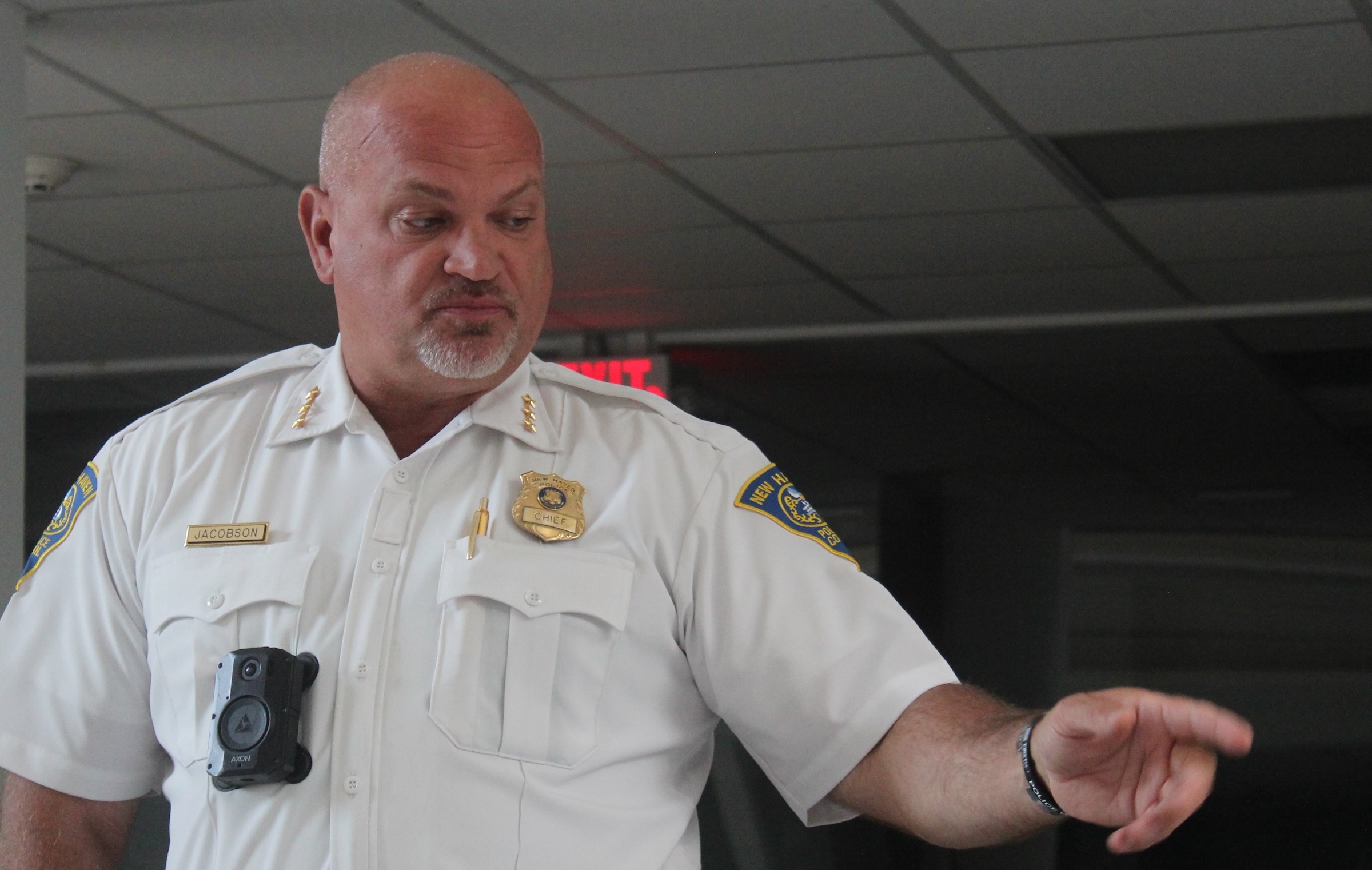
Mona Mahadevan photos
Chief Jacobson on Vape R' Us: "It blows my mind that you can be in suspension but still in business."
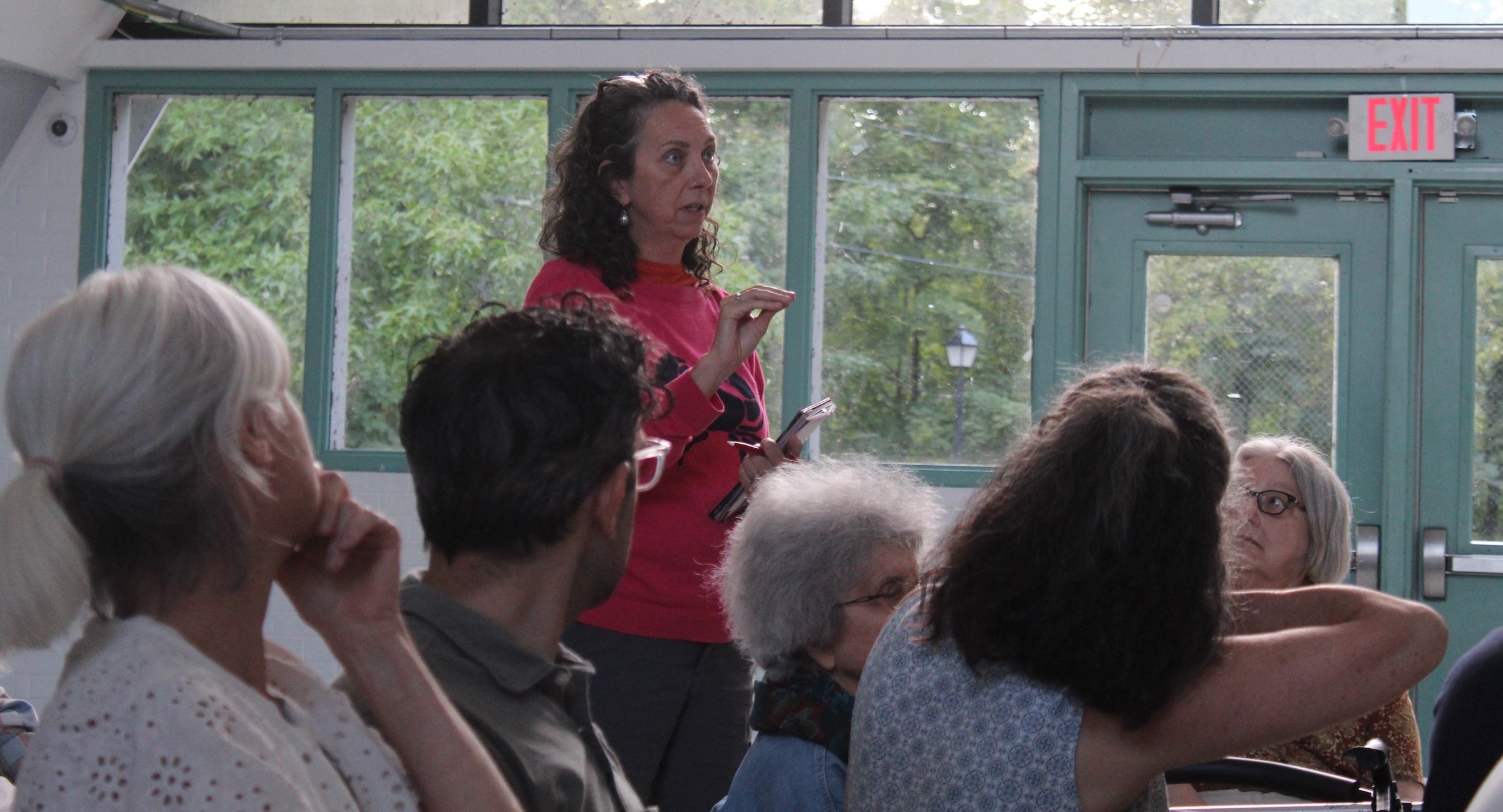
Westville Nursery School's Shannon Knudsen: "I don't understand how these shops were ever able to open and operate in the first place."
More than three dozen Westville residents packed Coogan Pavilion to demand that city officials and police officers step up enforcement against rule-breaking smoke shops.
Frustration ran high Wednesday night as neighbors questioned why well-known problem stores are still open for business.
Westville Alders Adam Marchand, Richard Furlow, and Amy Marx joined city Health Department Director Maritza Bond and Assistant Corporation Counsel Michael Pinto in fielding complaints. New Haven Police Chief Karl Jacobson, Assistant Chief Bertram Ettienne, and Lt. Pedro Colon also offered remarks.
“We don’t want a de facto cannabis factory dressed up as a toy store,” opened Marchand. He was referencing Vape R Us, a Westville Village smoke shop where police officers have seized more than 100 pounds of illegal cannabis products over three visits, leading to the state’s suspension of the store’s e‑cigarette and vape license.
Several attendees pressed officials to explain why the store is still open. Thea Buxbaum, founder of ArtLoftsWest, asked, “If one of us were caught with 40 pounds of weed, we’d be arrested on the spot, right?”
Yes, confirmed Jacobson.
“So, pardon my French,” Buxbaum exclaimed, “but W.T.F.?” The audience applauded.
Jacobson noted that the clerks who were working on the days of the seizures have been arrested. But the State’s Attorney refused to sign an arrest warrant for the owner, said Colon, and the landlord, even after being hit by a fine from the Livable City Initiative, has done little to cooperate with the department.
Shannon Knudsen, director of Westville Nursery School, noted that Vape R Us is one of three smoke shops within 1,000 feet of her school. “I don’t understand how these shops were ever able to open and operate in the first place,” she said.
Pinto explained that those three stores opened before the city’s updated zoning rules took effect, essentially “grandfathering” them in as smoke shops. But he and other officials acknowledged that the older regulations weren’t designed with today’s smoke shop model in mind: stores that function as “gray market” cannabis retailers.
After Connecticut legalized marijuana in 2021, Pinto said, the black market receded, but a “gray market” then emerged, with vape shops, bodegas, and convenience stores selling marijuana without licenses. He suspects that smoke shops now depend on cannabis to stay afloat, pointing to the dozens of bongs collecting dust on their shelves.
Jamesetta Williams, who lives in Beaver Hills, noted that open-air drug use, loitering, and panhandling have started “trickling down” Whalley Avenue, especially around West Rock Plaza. “It’s terrible to drive down,” she lamented. As she spoke, claps and “yeah’s!” echoed throughout the room.
After the meeting, she told the Independent that while she was glad to support action against smoke shops near Westville Nursery School, “no one cared” when stores first opened near Davis Academy for Arts & Design, a school that mostly serves students who are racial minorities.
“Because of who the audience is — homeowners, and the color of their skin — now, there’s a meeting,” speculated Williams. “It’s who is at the school and where the school is at.”
In response to residents’ concerns, officials highlighted the city’s new zoning and licensing regulations, which, among other things, require smoke shops to register with the city by Oct. 1. According to Bond, of the roughly 193 stores with tobacco retail licenses (23 of which are smoke shops), 25 have submitted their applications already.
Bond also listed out some of her department’s new, stronger enforcement tools, such as unannounced health inspections and a “secret shopper” program, allowing people between 18 and 20 to test whether smoke shops will sell to them. She said the city would also be able to review shops’ advertising for “deceitful claims.”
“We gave them a six month grace period to get it together,” said Bond. “I’m not here to play games.”
The next step, said Pinto, is giving the city authority to shut shops down “on a civil level in addition to criminal.”
To do so, Furlow and Pinto are drafting an ordinance amendment that would allow the city to impose civil penalties and seize profits generated from illegal cannabis sales by filing an affidavit with a Superior Court. That authority was provided by An Act Concerning Enforcement of the State’s Cannabis, Hemp, and Tobacco Laws, signed by Gov. Ned Lamont in June. They expect to present the amendment to the Board of Alders in the next few months.
Looking ahead to the next state legislative session, Bond said she will “fight back” to close a “loophole” that allows the delivery of marijuana in places where its sale is not permitted.
Until then, she urged the public to continuing acting as the city’s “eyes and ears” by reporting illegal cannabis sales on SeeClickFix.
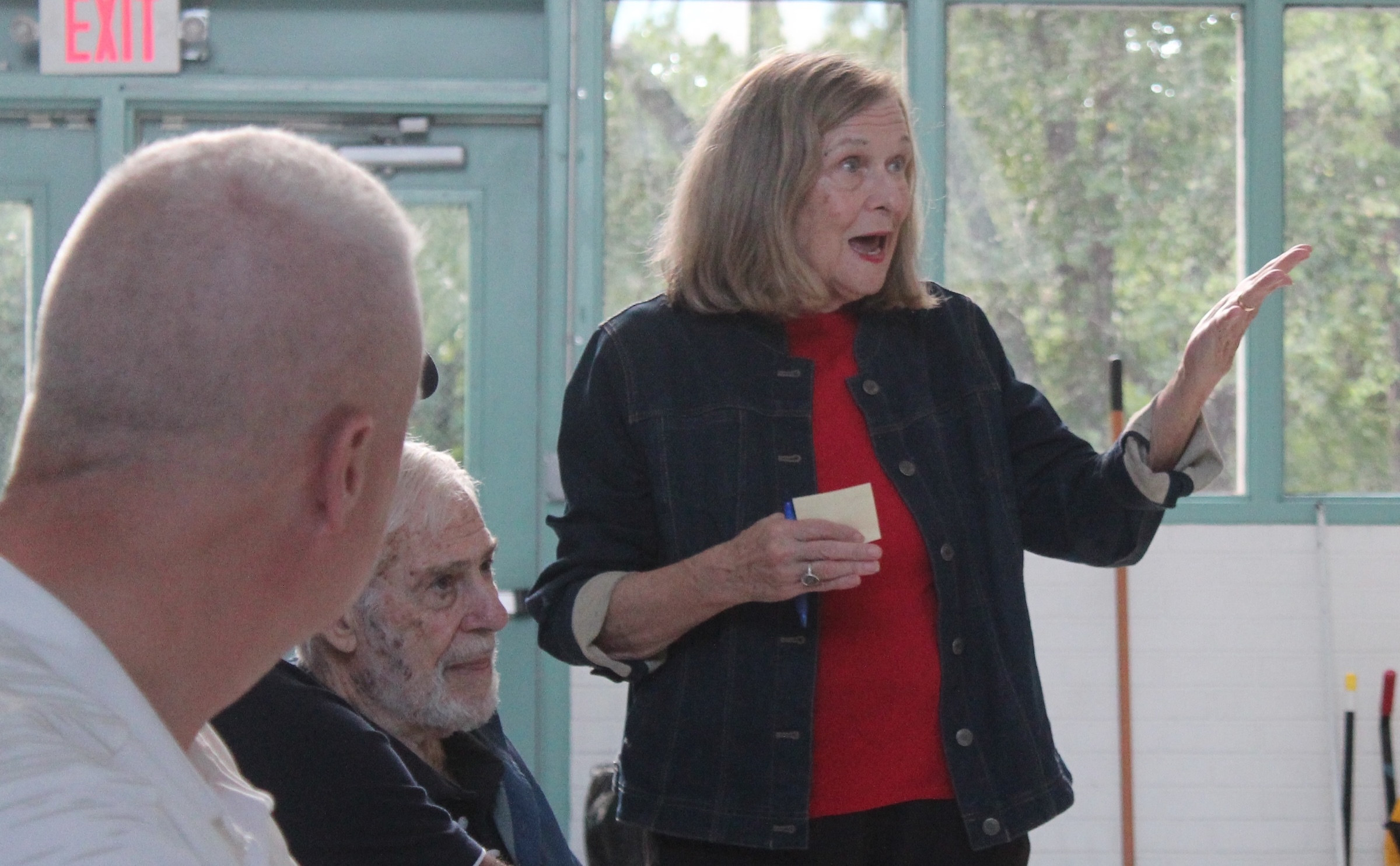
State Rep. Pat Dillon proposes changing the liability standards on smoke shop owners to make them easier to prosecute.
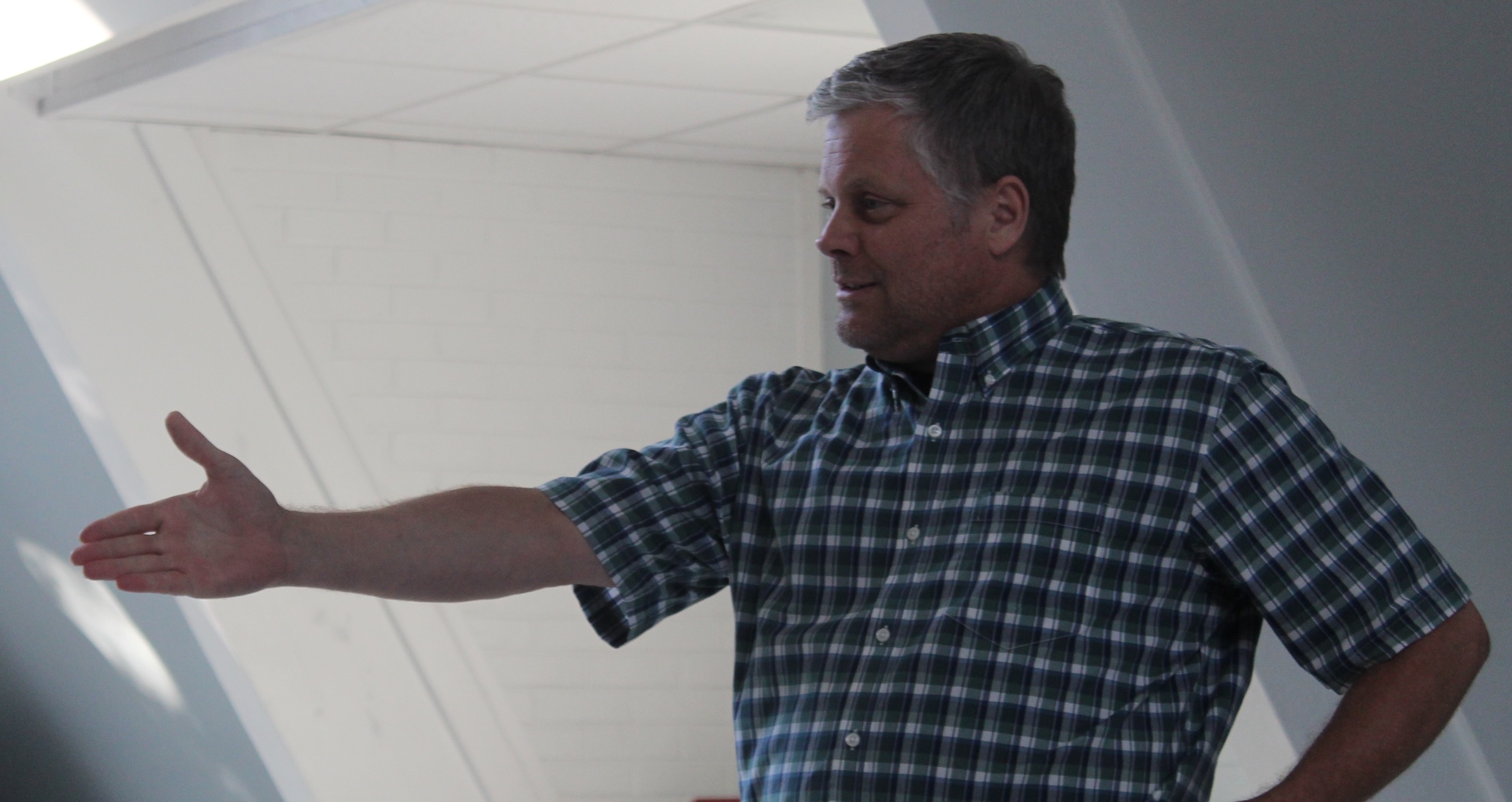
Alder Adam Marchand on Vape R' Us: "We want people to walk around and feel safe in that area."
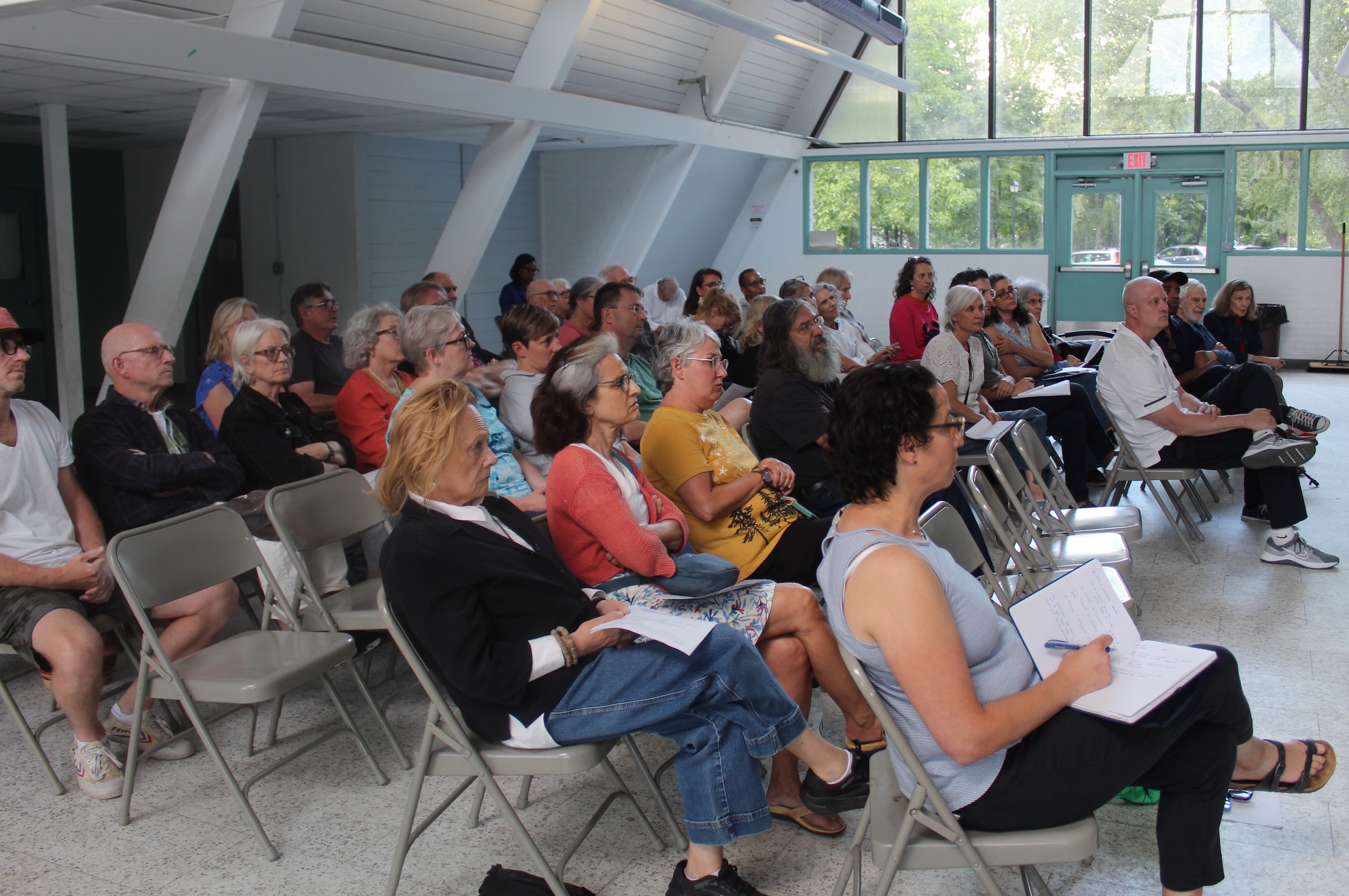
A packed crowd of frustrated Westville neighbors.
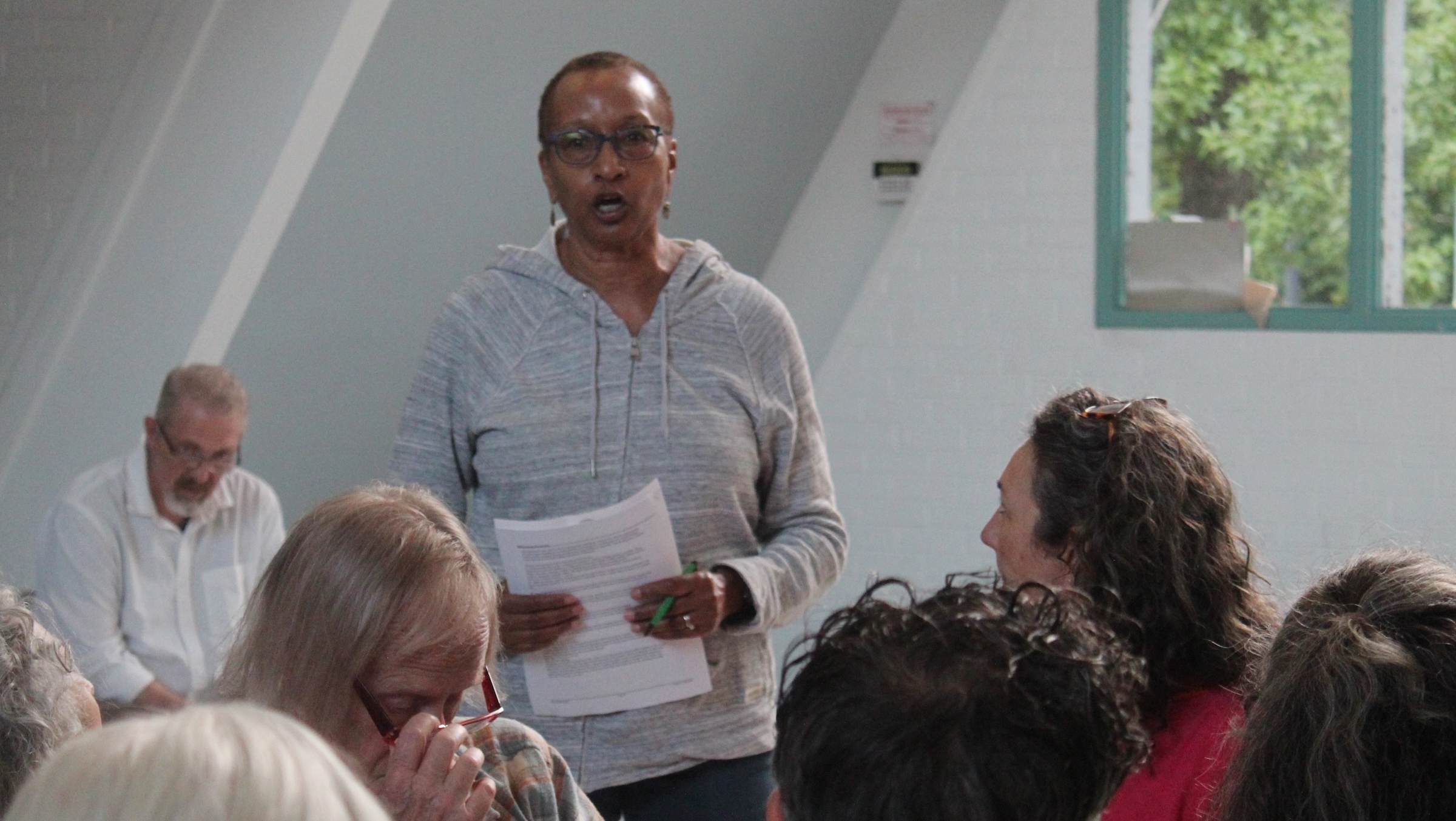
Jamesetta Williams is optimistic that enforcement will step up against smoke shops, "as long as we keep pushing."
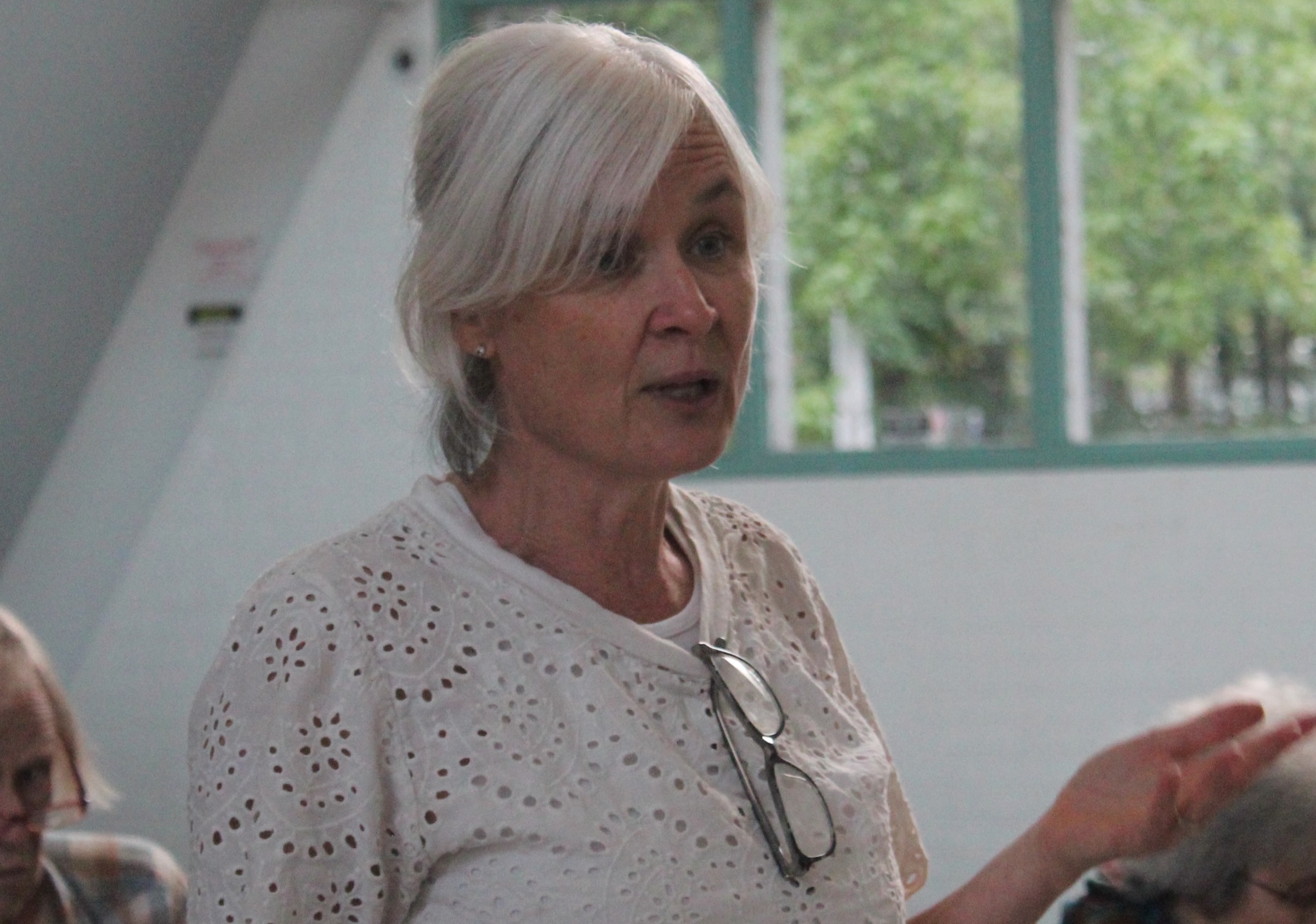
Given how much smoke shops have evolved, Lizzy Donius, Executive Director at the Westville Village Renaissance Alliance, questioned whether the "grandfathering" argument still holds.